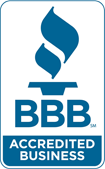
Debt Relief Attorney Assisting Alabama Residents
There are a number of reasons why a debtor might need to convert a Chapter 13 bankruptcy to a Chapter 7 bankruptcy. In some cases, the court forces the conversion, while in other cases your financial circumstances may dictate that you should convert your case. For example, if you are fired from your job and are unable to find another position, you may not be able to stay with your Chapter 13 debt repayment plan. Similarly, if you have a medical emergency and become disabled, you may need to leave your job even though you have more medical or disability bills to pay. In that case, you might lose your ability to make the same debt repayments. At Grainger Legal Services, Alabama bankruptcy lawyer Charles Grainger can help you determine whether you need to convert your case and represent you through the process.
Converting Chapter 13 to Chapter 7 Bankruptcy
A bankruptcy court can order a conversion from Chapter 13 to Chapter 7 bankruptcy “for cause.” Some grounds for requiring you to convert your case can include unreasonable delays of plan payments if the delays cause harm to your creditors, or a failure to make your plan payments at all.
However, you also have the right to voluntarily convert your case to a Chapter 7 bankruptcy as long as you have not received a Chapter 7 discharge within the last eight years, and you are eligible for Chapter 7 relief. Generally, to file for Chapter 7, you need to pass the means test. This test examines both your income and your expenses. If you have the ability to pay some debts through a Chapter 13 plan, you will not pass the means test. Courts are split, however, on whether you need to pass the means test to convert your case from a Chapter 13 to Chapter 7 case.
If you convert your case, the forms you filed in support of your Chapter 13 case as well as the creditors’ proofs of claims will be made part of the Chapter 7 case. How exemptions are treated (and from which day they count) vary from court to court. You may need to make some amendments, or file a new set of schedules. Additionally, another meeting of the creditors must be held.
Under Section 348(f) of the Bankruptcy Code, the property of the estate in the converted case includes the property of the estate, as of the date of filing of the petition, that also remains in the debtor’s possession or control as of the conversion date. This means that your bankruptcy estate in the Chapter 7 case will depend on the property that you had as of the filing date of the original Chapter 13 petition and that you kept.
Consult an Experienced Bankruptcy Lawyer in Alabama
Bankruptcy can be a difficult process for laypeople to navigate, and small errors in your paperwork can significantly affect your ability to secure a discharge. The conversion process can also be challenging and necessitates additional paperwork. For most filers, it is important to consult an experienced Alabama bankruptcy attorney. At Grainger Legal Services, we can counsel you on converting your Chapter 13 bankruptcy to Chapter 7. Debt relief attorney Charles Grainger maintains offices in Prattville, Montgomery, and Troy. Call us at (334) 260-0500 or contact us online to schedule a free consultation.


 Attorney Charles Grainger possesses decades of legal experience focused on debtor-creditor law, bankruptcy, and business law. His legal work is designed to help clients overcome debt and secure a stronger financial footing. He also provides legal services to entrepreneurs and business owners. Grainger Legal Services takes a comprehensive approach to debt relief and financial education for clients in south-central Alabama. [
Attorney Charles Grainger possesses decades of legal experience focused on debtor-creditor law, bankruptcy, and business law. His legal work is designed to help clients overcome debt and secure a stronger financial footing. He also provides legal services to entrepreneurs and business owners. Grainger Legal Services takes a comprehensive approach to debt relief and financial education for clients in south-central Alabama. [ 


